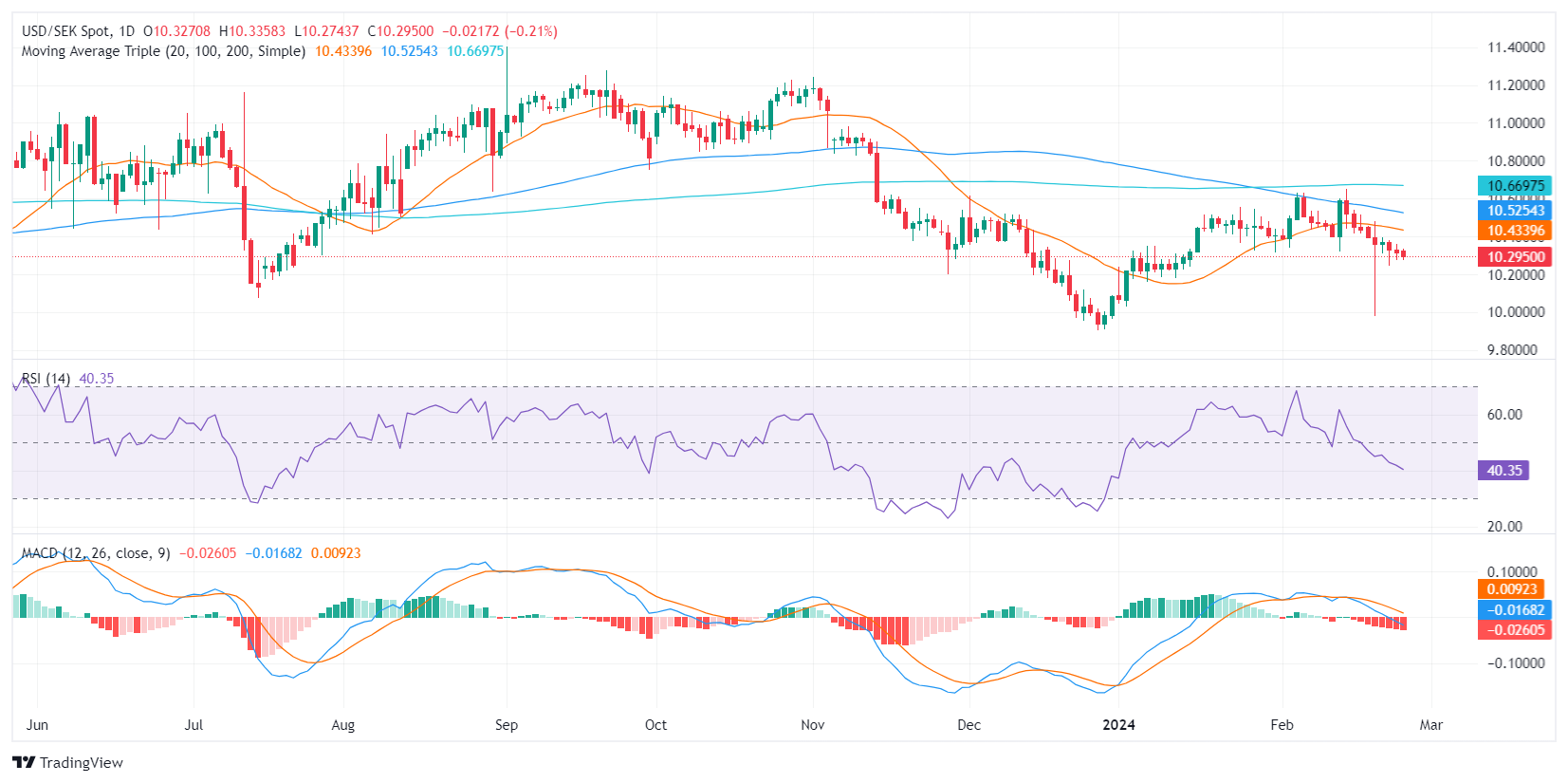- USD/SEK is trading at 10.306, losing 0.14% in Monday's trading session.
- The Swedish Krona is resilient and undervalued despite Sweden's weak economic fundamentals, outperforming its G10 counterparts.
- Governor Per Jansson flagged the possibility of a rate cut in May or June amid a spike in inflation to 5.4% year-on-year.
The USD/SEK pair saw a slight decline, registering a 0.14% decline in Monday's session, settling at 10.306. In terms of data, the United States is trading weak, due to poor housing data released earlier in the session, but all eyes appear to be on the upcoming US economic activity and inflation reports. at the end of the week.
The Swedish Krona (SEK) has recently gained ground against the US Dollar, despite presenting a mixed economic outlook. Furthermore, the spike in inflation in January in Sweden could push the Riksbank to delay cuts until June, somewhat aligning with the Federal Reserve's (Fed) stance.
Should Swedish monetary policy align with the US, the health of each economy will dictate the pace of the pair. This week, the US will report revisions to the fourth quarter Gross Domestic Product (GDP) and January Personal Consumption Expenditure (PCE) figures, which could affect expectations about upcoming policy decisions. the Fed and fuel the volatility of the pair. For now, markets appear to have ruled out the chances of a cut in March and May and moved them to June.
The daily Relative Strength Index (RSI) is currently positioned in the negative territory as it has been tracking below 50, while the Moving Average Convergence (MACD) histogram, with ascending red bars, signifies a negative which means that sellers are taking over in the market, applying downward pressure on the pair.
Furthermore, the pair's underlying position with respect to its 20-day, 100-day, and 200-day SMA reaffirms the bearish bias.
USD/SEK Daily Chart

Source: Fx Street
I am Joshua Winder, a senior-level journalist and editor at World Stock Market. I specialize in covering news related to the stock market and economic trends. With more than 8 years of experience in this field, I have become an expert in financial reporting.







